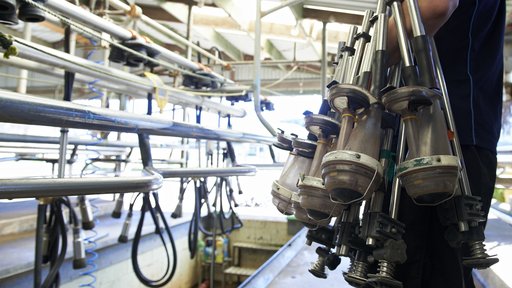We are now offering a new and improved test to help you better detect mastitis in your herd.
The Mastitis Multiplex test provides more information and greater accuracy at a lower cost and has replaced LIC’s existing Staph. aureus PCR test.
By utilising DNA detection technology, the new Mastitis Multiplex PCR test uses herd test milk samples to detect the three most common mastitis causing bacteria;
- Staphylococcus aureus
- Streptococcus uberis
- Streptococcus dysgalactiae.
It also determines the mastitis bacteria above are resistant to penicillin antibiotics - allowing you to make more informed decisions.
More about the bacteria
Staphylococcus aureus
Staphylococcus aureus is a common cause of mastitis, which can be clinical (short duration) or become chronic sub-clinical, lasting weeks or months. If not well managed, infections can be transmitted from cow to cow during the milking process due to contaminated milk on liners and on milker’s hands. Damaged teats can harbour the bacteria and increase risk of infection.
Staph. aureus attacks the tissue of the udder causing production loss due to permanent udder damage. Ongoing sub-clinical infections can result in recurrent clinical infections resulting in significant production loss in the infected quarter. Infected cows may have a fluctuating cell count and intermittent shedding of bacteria.
Good milking hygiene and teat disinfection are important control measures.
Streptococcus uberis & Streptococcus dysgalactiae
Streptococcus uberis thrives in the environment, particularly in wet and muddy areas, and can contaminate teats, leading to mastitis. The environment is also the primary source of infection by Streptococcus dysgalactiae, but contagious transmission from cow to cow can also occur during the milking process. Good milking hygiene is required to help prevent the spread of these environmental bacteria, as well as reducing exposure to wet, muddy contaminated areas.
BlaZ gene
The Mastitis Multiplex test is also able to determine if the mastitis bacteria identified in milk contain a gene (blaZ) that indicates resistance to penicillin antibiotics. In most cases blaZ is carried by Staph. aureus, but other non-aureus Staphylococci may also contain this gene.
A positive blaZ result indicates the possibility that bacteria are present which are resistant to beta-lactam antibiotics, such as penicillin. Please consult your vet to determine if an alternative antibiotic is more suitable than penicillin-based antibiotics for treatment of these animals.
For more information view our frequently asked questions here: Mastitis_multiplex_FAQs
Vet and/or farmer list
This will allow selection of animals based on a combination of high SCC history, clinical history, past treatments, potential new infections or any other selection criteria relevant to the herd.
LIC list based on agreed SCC criteria
The SCC threshold will be decided in consultation with the vet and farmer and a maximum number of samples for testing can be specified. A minimum number of 24 samples is required for testing.
Mastitis Multiplex PCR test must be booked prior to the herd test.
Individual animal results will be emailed to your vet along with the test interpretation.
Book a Mastitis Multiplex PCR test
Bookings from August are available now through your vet.
Need help?
Email our Animal Health team or phone us on 0800 436 362 once you have a herd testing date.



